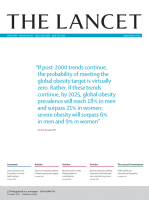 Surgeon Paolo Macchiarini did not apply for the necessary ethics approval to perform the pioneering transplants he’s known for, according to the Swedish Research Council.
Surgeon Paolo Macchiarini did not apply for the necessary ethics approval to perform the pioneering transplants he’s known for, according to the Swedish Research Council.
Chief Legal Counsel Anna Hörnlund, who wrote a letter in this week’s The Lancet, says Macchiarini’s work needed to obtain ethical approval from one of six regional ethical review boards, as required by Swedish law — and neither Macchiarini nor his former employer, Karolinska Institutet, did so:
On Jan 1, 2004, a law came into force in Sweden concerning the ethical review of research conducted in human beings. This law covers research conducted in living human beings, on human cadavers, and on biological material from human beings, and the handling of sensitive personal information. The Swedish Research Council considers Paolo Macchiarini’s activities to be research conducted in human beings.
When research is conducted in human beings, the principal investigator (defined as the state agency or the physical or legal entity under whose organisation the research will be conducted) is obligated by Swedish law to apply for an ethical review. The application must be submitted to one of six regional ethical review boards. These review boards are individual public authorities. Neither Macchiarini, nor the Karolinska Institutet, has submitted such an application.
According to a news article in Svenska Dagbladet, Macchiarini and KI have argued that the surgeries were performed for health reasons, not research, which require different ethical approvals. The Swedish Research Council disagrees.
Earlier this year, Macchiarini defended his work in another The Lancet letter, which detailed the steps he and his co-authors took to okay the research presented in his seminal 2011 paper, “Tracheobronchial transplantation with a stem-cell-seeded bioartificial nanocomposite: a proof-of-concept study.” That paper described a first-of-its-kind procedure: A 36-year-old man with recurrent tracheal cancer received an artificial airway seeded with his own stem cells.
In “Tracheobronchial transplantation,” Macchiarini said he consulted the Medical Products Agency and the Regional Ethics Committee, confirmed the patient had no other therapeutic options, got an okay from the chairman of the Ethics Council of Karolinska University Hospital, and asked the patient to sign a consent form.
Since 2014, Macchiarini has had to defend himself against a number of charges, including downplaying the risks of the life-threatening procedure.
Although (KI) initially ruled after an external investigation that Macchiarini’s behavior “does not qualify as scientific misconduct,” the fallout continued after a documentary series on Swedish Television suggested he had operated on patients in Russia whose conditions were not life-threatening enough to warrant such a risky procedure, among other allegations. KI recently ordered a new external investigation, and dismissed him from his post. Both the secretary general of the Nobel Assembly and KI’s vice chancellor have resigned over the debacle.
Check out our ever-updating timeline on what’s happened in the Macchiarini case here.
Like Retraction Watch? Consider making a tax-deductible contribution to support our growth. You can also follow us on Twitter, like us on Facebook, add us to your RSS reader, sign up on our homepage for an email every time there’s a new post, or subscribe to our new daily digest. Click here to review our Comments Policy. For a sneak peek at what we’re working on, click here.
Well worth listening to the interview with Macchiarini (starts from about 2 min), in English:
http://www.svtplay.se/video/8150958/aktuellt/aktuellt-4-maj-21-00
Stem cell scientist suspected of involuntary manslaughter
https://www.statnews.com/2016/06/22/stem-cell-scientist-manslaughter/